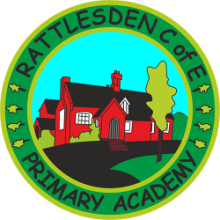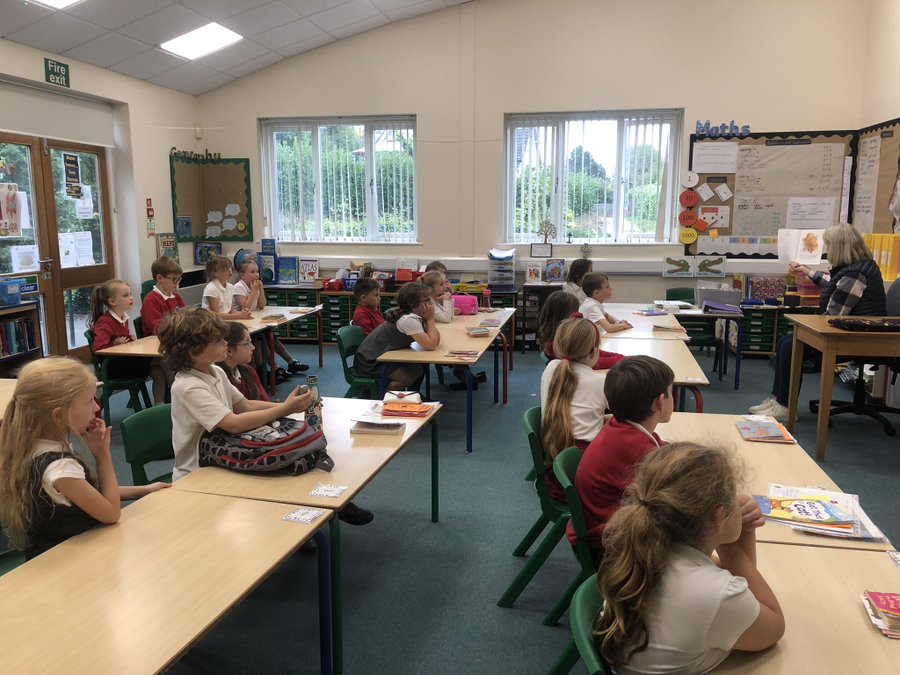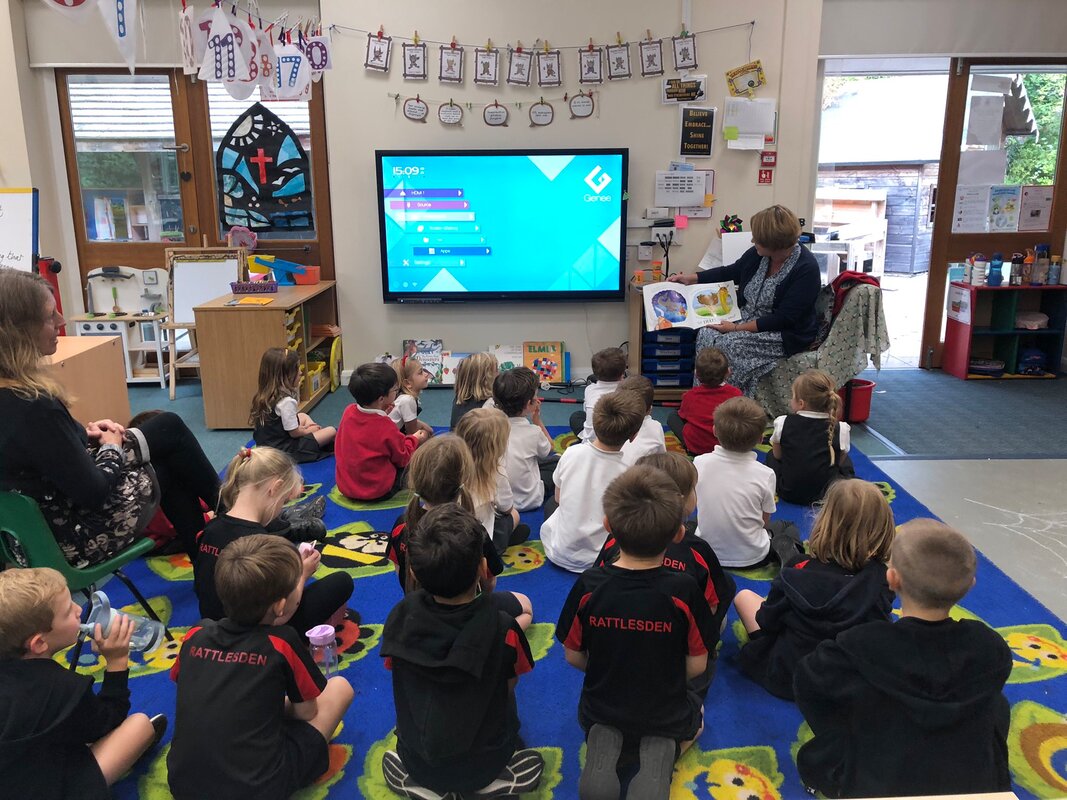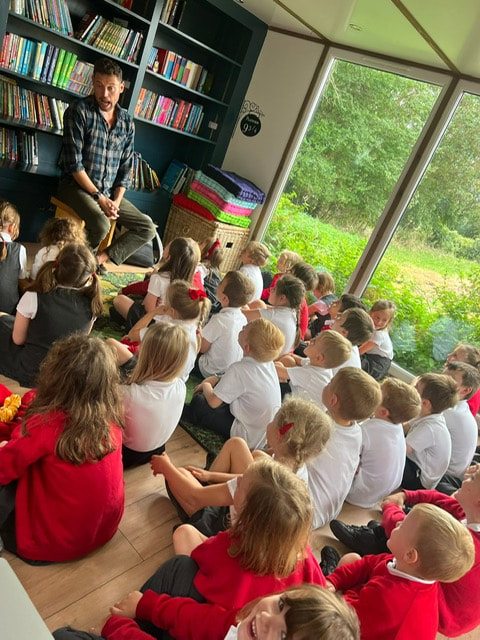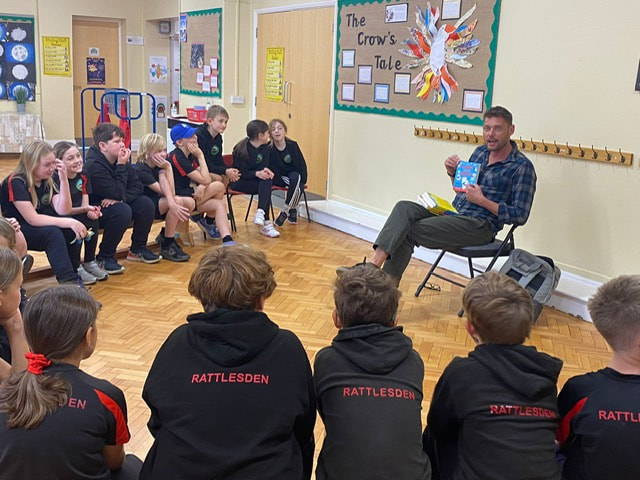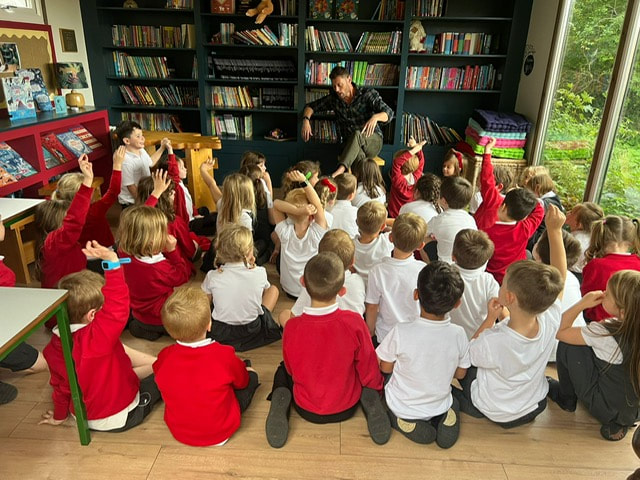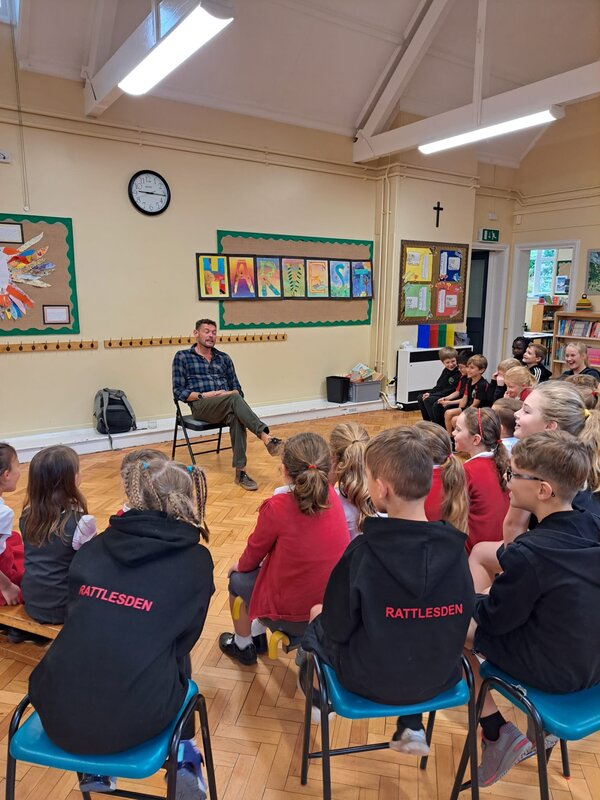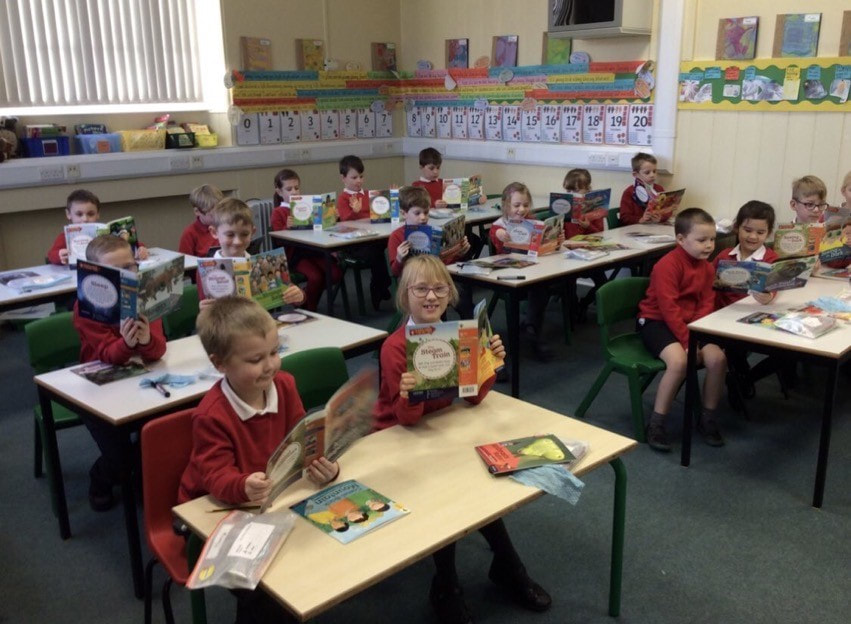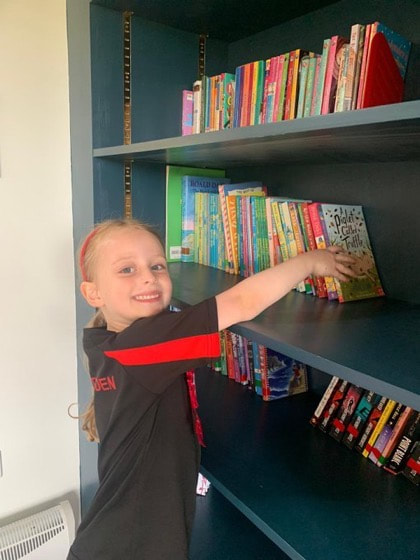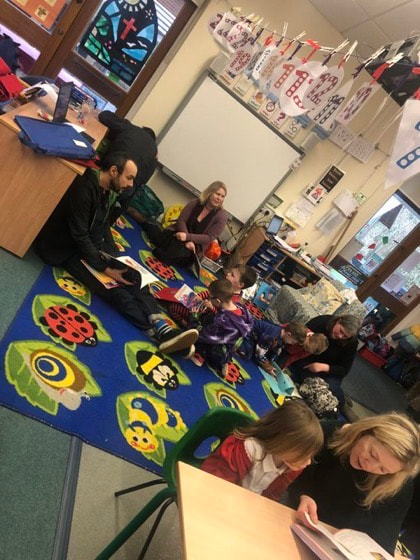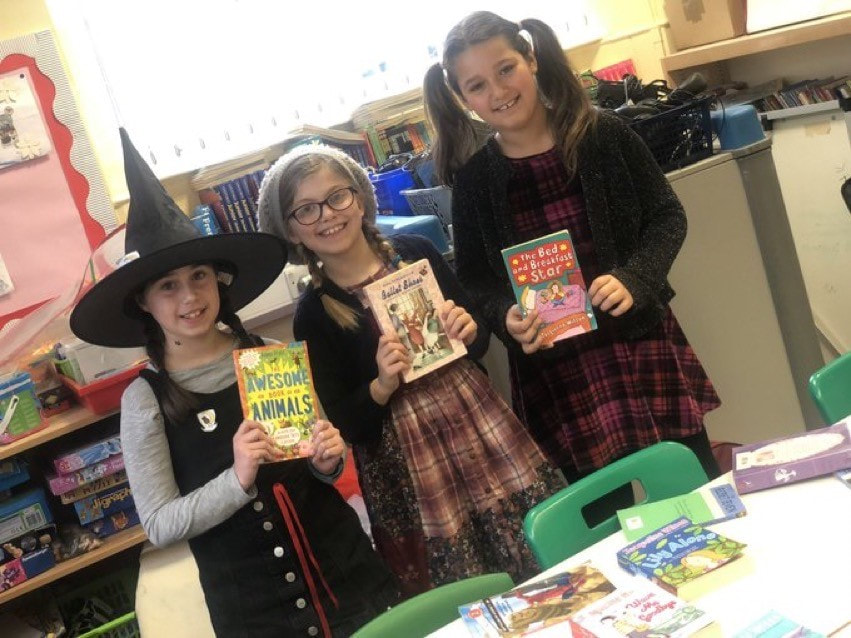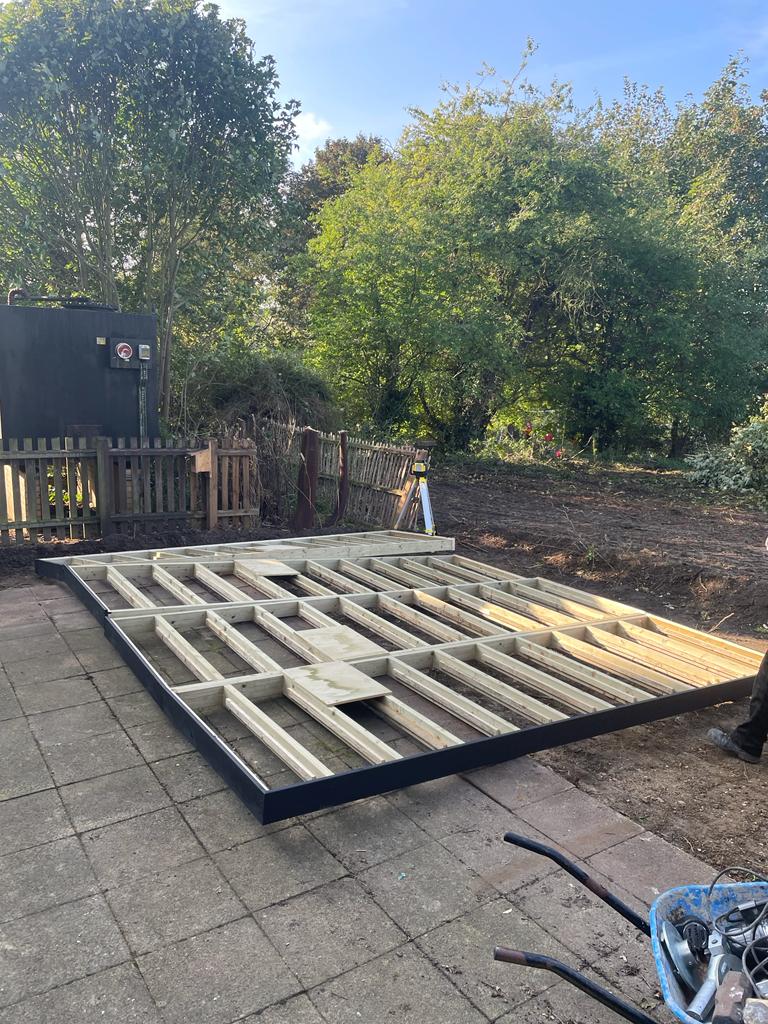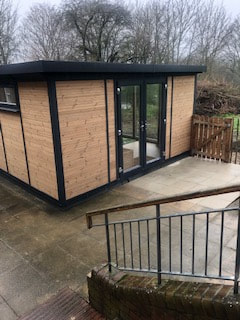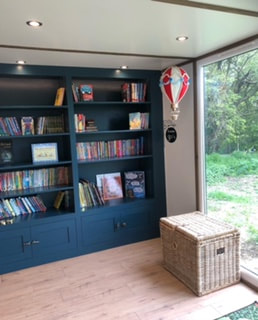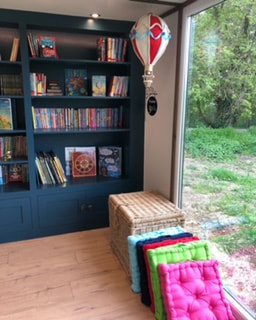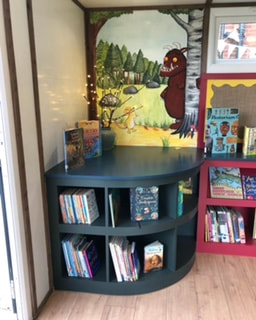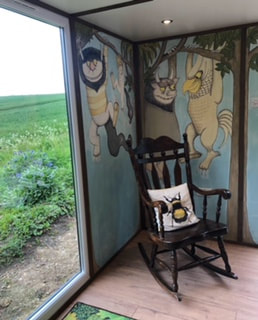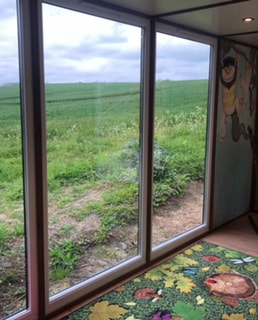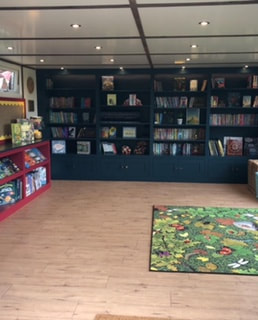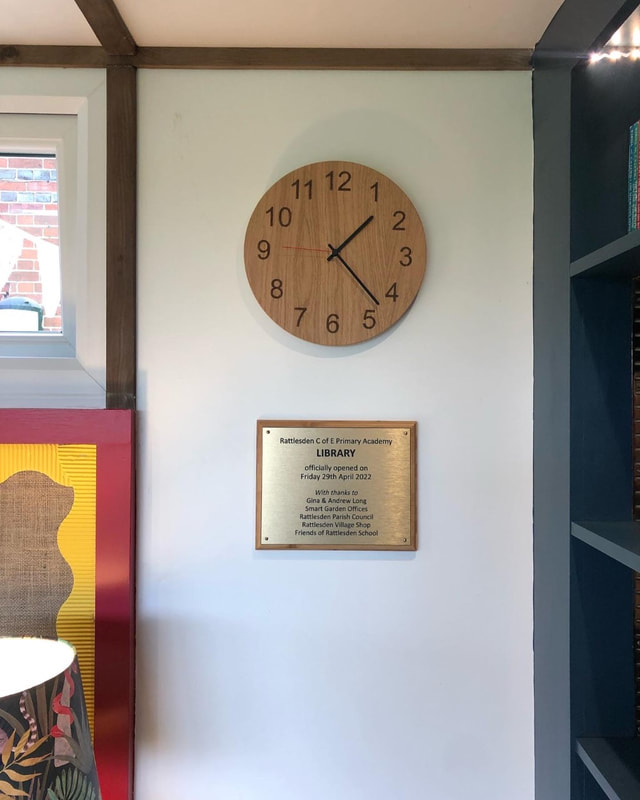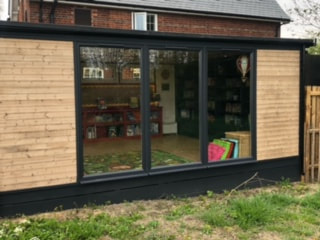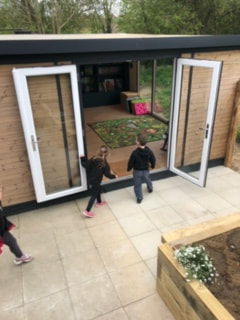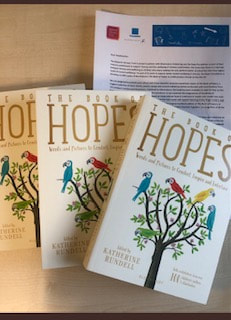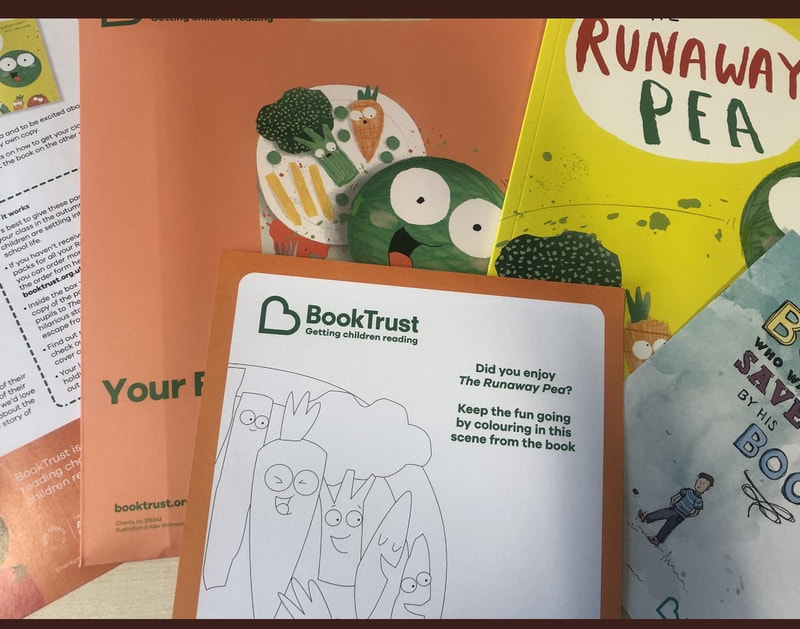Key Priorities
Priorities for Reading
- Raise the profile of reading including parental involvement and support
- Increase the number of pupils gaining expected or above standard in reading
- Ensure books throughout the school match the readers ability and cover a range of genres
- Update and review the reading spine
Intent, Implementation and Impact
Intent
Rattlesden Primary Academy puts reading at the heart of the curriculum. We strive to foster a love of reading at school and at home. We believe reading is an entitlement that should enable children to connect with some of the finest words ever written. It should open up a world of possibility and intrigue and is a fundamental life skill which, enables children to communicate effectively in all areas and equips them for the challenges they will face in the wider world.
We aim to have pupils leave Rattlesden Primary Academy as lifelong readers, who have an instilled love for reading in them. In order to do this, children are encouraged to read widely and are exposed to a variety of genres. Reading across all subjects within the curriculum will prepare pupils for life beyond the Primary Classroom, where they will be taking with them the skills required for in-depth reading and analysing.
Speaking and listening is prioritised in order to build vocabulary for all learners in order to understand more complex texts. We provide a reading rich environment where pupils can access text high quality fiction and non-fiction texts.
We intend that our pupils will be both independent and reflective readers who can read fluently and for meaning.
We provide rich, meaningful discussions around texts, where all children feel confident and able to contribute by using their reading skills to access all areas of learning.
We use approaches that encourages children to spot clues and apply strategies to understand texts at a deep level
We also bring reading to life and give it purpose through drama and performance.
Aims
The overarching aim is to promote high standards of language and literacy by equipping pupils with a strong command of the spoken and written language, and to develop their love of literature through widespread reading for enjoyment. Our aims to ensure that all pupils:
Early Reading and Phonics:
The systematic teaching of phonics has a high priority throughout Foundation Stage and Key Stage 1. We have chosen to use the Supersonic Phonic Friends DFE validated programme to teach Phonics. Our staff teach learners the relationship between sounds and written spelling patterns, or graphemes, which represent them.
All children in Reception and KS1 have daily phonics sessions in a whole class setting with those who are struggling to grasp key elements taught, receiving additional phonics sessions. This is to ensure all pupils receive equal exposure to teaching material for their age group and are given the same opportunity to learn.
Additional phonics sessions are taught in small groups where pupils participate in speaking, listening, spelling and reading activities that are matched to their targeted needs.
We carry out a baseline assessment as children enter EYFS. We continue to assess children's phonics skills each half-term using phonics assessments in Reception and Year 1 that follow a similar pattern to daily lessons: phoneme / grapheme awareness, segmenting and blending, reading and writing.
As well as this, teachers draw upon observations and continuous assessment to ensure children are stretched and challenged and to identify children who may require additional support. Timely intervention is planned for those children who are working below expected standard as soon as their needs are identified.
We recognise that systematic, high quality phonics teaching is essential, but additional skills and opportunities are required for children to achieve the goal of being a well-rounded reader. When pupils have completed the phonics programme and are secure word level readers, reading is developed during whole class and guided reading sessions, using high quality text and focused skill teaching. Strong links are made between reading and writing so that skills and strategies can develop between the two. Children read and enjoy high quality fiction, non-fiction and poetry, which are linked to topics across the curriculum where relevant.
In Key Stage 1, each week, all children are heard read three times during reading sessions. The lowest 20% of children receive additional reading sessions with an adult. These children may also receive targeted intervention and participate in daily keep-up sessions to ensure they do not fall behind.
In Key Stage 2, the children are heard read weekly, either in a whole class group or individually. Those who need additional reading practice in Key Stage 2 are heard at least 3 times a week.
Children who do not pass the Year 1 Phonics Screening Check will continue to have targeted phonics intervention in Year 2 alongside their daily phonics lesson which focuses on spelling patterns. Phonics is continued in KS2 for those who need it including application practice with decodable reading books.
Progress is monitored through Rising Stars Assessments (PIRA) and the Salford Reading Test.
Support to read in Key Stage 2
Those children who are not making expected progress in reading in Key Stage 2, will undertake further assessments by the SENDco and receive additional interventions. In year 3, this may include revisiting gaps in phonetic knowledge.
Guided Reading:
In guided reading session, children develop their key reading strategies and skills for decoding and comprehending in groups of a similar ability. This is to ensure pupils have the opportunity to read in groups with books accurately challenging for their word and comprehension level. Children also continue to develop their reading fluency skills, building upon their phonics knowledge and skills.
Whole Class Reading:
In whole class reading sessions, children continue to develop their strategies and skills, looking at the elements of vocabulary, comprehension, inference and structure.
Vocabulary Focus:
Through phonics, spelling, guided reading and whole class reading, vocabulary linked to the text is focused upon. Pupils look at root words to gather understanding of meaning, synonyms to build and wider their vocabulary bank and the type of vocabulary it is to gain an understanding of appropriate times to use it across the curriculum. Key vocabulary within text is reinforced daily across appropriate curriculum areas to ensure it becomes embed and children gain the ability to use within the spoken / written language as appropriate.
Class Reads:
All classes experience daily class reads, for pleasure, to excite and engage children and to expose them to a range of genres.
Class read time is a time for pupils to read or hear a book read without interruption. At least once a week, reading sessions are specifically linked to whole class reads and focus on retrieving and inferring information from the text, discussing characters and plots, making predictions and summarising events and themes.
Application of Skills:
Application of reading skills are planned for across the curriculum with skills and strategies taught being applied in other subjects such as Science, Topic and RE. Here you will see pupils reading and thinking as readers, using reciprocal and close reading techniques to support this.
Text Choice:
Texts chosen in each year group are carefully selected by class teachers in conjunction with the English subject lead. We follow the Pie Corbett Reading Spine to enable children to access high-quality literature
Books and text (including non-fiction) are also selected linked to year group topics and class interests to give opportunities to build background knowledge and read for pleasure. Each year group is provided with an adaptable reading list, which gives suggested and complimentary texts to topics across the curriculum. These are shared with the parents via our website and termly newsletters.
Home Reading:
Reading at home is encouraged and promoted on a regular basis. Children learning within the phonics programme, Supersonic Phonic Friends, take home a book matched directly to their current phonics level; they are also encouraged to choose an additional book to share with their family at home. Following this, children continue to work throughout the school reading scheme based on a book banding system (Oxford Reading Tree). These are levelled books that match a child’s word and comprehension level. Pupil’s take home books that are matched to their independent reading level to ensure they are able to practise fluency and understanding, whilst reading for enjoyment.
Once pupils have advanced from the reading scheme, they are able to choose books within their reading age ability. These books are chosen from the class / key stage selection and reading ability as measured through PIRA tests each term. Book recommendations are given by class teachers and peers to support children in finding books that interest and engage them. The school library provides additional texts, many of which are new.
Impact
Through the teaching of systematic phonics, our aim is for children to become fluent readers by the end of Key Stage 1. With decoding taught as the prime approach to reading, pupils will become familiar with this strategy and have the confidence to work out unfamiliar words in any new texts they encounter even when they have come to the end of the Supersonic Phonic Friends programme. Pupils will have the opportunity to develop their fluency and comprehension as they move through the school; accessing a range of texts independently.
Attainment in reading is measured using statutory assessments such as the end of EYFS, Key Stage 1 and 2 and following the outcomes in the Year 1 Phonics Screening check. Additionally, we track our own reading attainment through the use ongoing phonics assessments (only for those who have not reached age expected standard in Key Stage 2), the PIRA tests and Salford Reading Test.
More importantly, we believe that reading is the key to unlock all learning and so the impact of our reading goes beyond the statutory assessments. We give all the children the opportunity to enter the amazing new worlds that a book opens up to them and share texts from a range of cultures or genres to inspire them to question or seek out more for themselves. We want reading to be the golden thread running through a child’s journey at Rattlesden. When they leave us, we want pupils to possess the reading skills and love of literature which will help them to enjoy and access any aspects of learning they encounter in the future.
Rattlesden Primary Academy puts reading at the heart of the curriculum. We strive to foster a love of reading at school and at home. We believe reading is an entitlement that should enable children to connect with some of the finest words ever written. It should open up a world of possibility and intrigue and is a fundamental life skill which, enables children to communicate effectively in all areas and equips them for the challenges they will face in the wider world.
We aim to have pupils leave Rattlesden Primary Academy as lifelong readers, who have an instilled love for reading in them. In order to do this, children are encouraged to read widely and are exposed to a variety of genres. Reading across all subjects within the curriculum will prepare pupils for life beyond the Primary Classroom, where they will be taking with them the skills required for in-depth reading and analysing.
Speaking and listening is prioritised in order to build vocabulary for all learners in order to understand more complex texts. We provide a reading rich environment where pupils can access text high quality fiction and non-fiction texts.
We intend that our pupils will be both independent and reflective readers who can read fluently and for meaning.
We provide rich, meaningful discussions around texts, where all children feel confident and able to contribute by using their reading skills to access all areas of learning.
We use approaches that encourages children to spot clues and apply strategies to understand texts at a deep level
We also bring reading to life and give it purpose through drama and performance.
Aims
The overarching aim is to promote high standards of language and literacy by equipping pupils with a strong command of the spoken and written language, and to develop their love of literature through widespread reading for enjoyment. Our aims to ensure that all pupils:
- Will be both independent and reflective readers who can read fluently and for meaning.
- Develop a love of reading that becomes a life-long habit, for both pleasure and information.
- Feel confident and able to contribute by using their reading skills to access all areas of learning, where they can elaborate and clearly explain their understanding and ideas.
- Appreciate a rich and varied language developed through exposure to diverse text with global perspectives.
- Bring reading to life and give it a purpose through speaking and listening, by teaching Philosophy through selected texts, and encouraging debate linked to our learning ‘threads’.
Early Reading and Phonics:
The systematic teaching of phonics has a high priority throughout Foundation Stage and Key Stage 1. We have chosen to use the Supersonic Phonic Friends DFE validated programme to teach Phonics. Our staff teach learners the relationship between sounds and written spelling patterns, or graphemes, which represent them.
All children in Reception and KS1 have daily phonics sessions in a whole class setting with those who are struggling to grasp key elements taught, receiving additional phonics sessions. This is to ensure all pupils receive equal exposure to teaching material for their age group and are given the same opportunity to learn.
Additional phonics sessions are taught in small groups where pupils participate in speaking, listening, spelling and reading activities that are matched to their targeted needs.
We carry out a baseline assessment as children enter EYFS. We continue to assess children's phonics skills each half-term using phonics assessments in Reception and Year 1 that follow a similar pattern to daily lessons: phoneme / grapheme awareness, segmenting and blending, reading and writing.
As well as this, teachers draw upon observations and continuous assessment to ensure children are stretched and challenged and to identify children who may require additional support. Timely intervention is planned for those children who are working below expected standard as soon as their needs are identified.
We recognise that systematic, high quality phonics teaching is essential, but additional skills and opportunities are required for children to achieve the goal of being a well-rounded reader. When pupils have completed the phonics programme and are secure word level readers, reading is developed during whole class and guided reading sessions, using high quality text and focused skill teaching. Strong links are made between reading and writing so that skills and strategies can develop between the two. Children read and enjoy high quality fiction, non-fiction and poetry, which are linked to topics across the curriculum where relevant.
In Key Stage 1, each week, all children are heard read three times during reading sessions. The lowest 20% of children receive additional reading sessions with an adult. These children may also receive targeted intervention and participate in daily keep-up sessions to ensure they do not fall behind.
In Key Stage 2, the children are heard read weekly, either in a whole class group or individually. Those who need additional reading practice in Key Stage 2 are heard at least 3 times a week.
Children who do not pass the Year 1 Phonics Screening Check will continue to have targeted phonics intervention in Year 2 alongside their daily phonics lesson which focuses on spelling patterns. Phonics is continued in KS2 for those who need it including application practice with decodable reading books.
Progress is monitored through Rising Stars Assessments (PIRA) and the Salford Reading Test.
Support to read in Key Stage 2
Those children who are not making expected progress in reading in Key Stage 2, will undertake further assessments by the SENDco and receive additional interventions. In year 3, this may include revisiting gaps in phonetic knowledge.
Guided Reading:
In guided reading session, children develop their key reading strategies and skills for decoding and comprehending in groups of a similar ability. This is to ensure pupils have the opportunity to read in groups with books accurately challenging for their word and comprehension level. Children also continue to develop their reading fluency skills, building upon their phonics knowledge and skills.
Whole Class Reading:
In whole class reading sessions, children continue to develop their strategies and skills, looking at the elements of vocabulary, comprehension, inference and structure.
Vocabulary Focus:
Through phonics, spelling, guided reading and whole class reading, vocabulary linked to the text is focused upon. Pupils look at root words to gather understanding of meaning, synonyms to build and wider their vocabulary bank and the type of vocabulary it is to gain an understanding of appropriate times to use it across the curriculum. Key vocabulary within text is reinforced daily across appropriate curriculum areas to ensure it becomes embed and children gain the ability to use within the spoken / written language as appropriate.
Class Reads:
All classes experience daily class reads, for pleasure, to excite and engage children and to expose them to a range of genres.
Class read time is a time for pupils to read or hear a book read without interruption. At least once a week, reading sessions are specifically linked to whole class reads and focus on retrieving and inferring information from the text, discussing characters and plots, making predictions and summarising events and themes.
Application of Skills:
Application of reading skills are planned for across the curriculum with skills and strategies taught being applied in other subjects such as Science, Topic and RE. Here you will see pupils reading and thinking as readers, using reciprocal and close reading techniques to support this.
Text Choice:
Texts chosen in each year group are carefully selected by class teachers in conjunction with the English subject lead. We follow the Pie Corbett Reading Spine to enable children to access high-quality literature
Books and text (including non-fiction) are also selected linked to year group topics and class interests to give opportunities to build background knowledge and read for pleasure. Each year group is provided with an adaptable reading list, which gives suggested and complimentary texts to topics across the curriculum. These are shared with the parents via our website and termly newsletters.
Home Reading:
Reading at home is encouraged and promoted on a regular basis. Children learning within the phonics programme, Supersonic Phonic Friends, take home a book matched directly to their current phonics level; they are also encouraged to choose an additional book to share with their family at home. Following this, children continue to work throughout the school reading scheme based on a book banding system (Oxford Reading Tree). These are levelled books that match a child’s word and comprehension level. Pupil’s take home books that are matched to their independent reading level to ensure they are able to practise fluency and understanding, whilst reading for enjoyment.
Once pupils have advanced from the reading scheme, they are able to choose books within their reading age ability. These books are chosen from the class / key stage selection and reading ability as measured through PIRA tests each term. Book recommendations are given by class teachers and peers to support children in finding books that interest and engage them. The school library provides additional texts, many of which are new.
Impact
Through the teaching of systematic phonics, our aim is for children to become fluent readers by the end of Key Stage 1. With decoding taught as the prime approach to reading, pupils will become familiar with this strategy and have the confidence to work out unfamiliar words in any new texts they encounter even when they have come to the end of the Supersonic Phonic Friends programme. Pupils will have the opportunity to develop their fluency and comprehension as they move through the school; accessing a range of texts independently.
Attainment in reading is measured using statutory assessments such as the end of EYFS, Key Stage 1 and 2 and following the outcomes in the Year 1 Phonics Screening check. Additionally, we track our own reading attainment through the use ongoing phonics assessments (only for those who have not reached age expected standard in Key Stage 2), the PIRA tests and Salford Reading Test.
More importantly, we believe that reading is the key to unlock all learning and so the impact of our reading goes beyond the statutory assessments. We give all the children the opportunity to enter the amazing new worlds that a book opens up to them and share texts from a range of cultures or genres to inspire them to question or seek out more for themselves. We want reading to be the golden thread running through a child’s journey at Rattlesden. When they leave us, we want pupils to possess the reading skills and love of literature which will help them to enjoy and access any aspects of learning they encounter in the future.
Reading
Early reading skills are taught via the Supersonic Phonics scheme. You can find more information on this link: www.supersonicphonicfriends.co.uk
This DfE approved phonics teaching programme was introduced in September 2022 throughout Key Stage 1 and Early Years. Our Phonics Lead is Mrs Bishop.
Every day the children are taught discrete phonics lessons. Following their phonics lesson, children then have the opportunity to apply their decoding skills by reading a book matched to their current phonics ability. Their reading lessons will focus on decoding and comprehension. The children will always have both a decodable phonics book to practise their phonics skills and a library book to share with an adult at home to grow their love of reading.
As the children move through school, we continue to foster the love of reading, allowing the children to borrow from an amazing range of books in our library, win prizes for 'getting caught reading' and having a weekly reading club (with cake!) We always celebrate World Book Day, and enjoy competitions such as 'A book in a jar' and decorating a potato to represent a book. We hold book swaps, so that children can have a new book for free, that has usually only been read once. Many children donate a book to the school library on their birthday.
This DfE approved phonics teaching programme was introduced in September 2022 throughout Key Stage 1 and Early Years. Our Phonics Lead is Mrs Bishop.
Every day the children are taught discrete phonics lessons. Following their phonics lesson, children then have the opportunity to apply their decoding skills by reading a book matched to their current phonics ability. Their reading lessons will focus on decoding and comprehension. The children will always have both a decodable phonics book to practise their phonics skills and a library book to share with an adult at home to grow their love of reading.
As the children move through school, we continue to foster the love of reading, allowing the children to borrow from an amazing range of books in our library, win prizes for 'getting caught reading' and having a weekly reading club (with cake!) We always celebrate World Book Day, and enjoy competitions such as 'A book in a jar' and decorating a potato to represent a book. We hold book swaps, so that children can have a new book for free, that has usually only been read once. Many children donate a book to the school library on their birthday.
Progression of skills - reading (click to view)
Mystery Readers
We are excited to welcome some 'mystery readers' into school.
Oak Class were joined by Annie's Grandma who read 'Dogger' by Shirley Hughes.
Oak Class were joined by Annie's Grandma who read 'Dogger' by Shirley Hughes.
Albert’s nanny was the first ‘Mystery Reader in Willow Class’! The children loved it!
Author Visit- James Campbell
World book day 2023
Shared reading
Our Library
Our new library was opening in the spring term of 2022 by Gina Long MBE. All of the community attended, including the Parish Council, Village Shop, SMART offices, Governors, the school PTA and pupils.
We have created an amazing space for the local community, including the Play School.
The space is available for use via prior arrangement with the Head Teacher. Please email the school for more details.
We invite children to donate a book to the library when it is their birthday. This book is labelled with details of who donated it and placed in the library for others to enjoy.
Our new library was opening in the spring term of 2022 by Gina Long MBE. All of the community attended, including the Parish Council, Village Shop, SMART offices, Governors, the school PTA and pupils.
We have created an amazing space for the local community, including the Play School.
The space is available for use via prior arrangement with the Head Teacher. Please email the school for more details.
We invite children to donate a book to the library when it is their birthday. This book is labelled with details of who donated it and placed in the library for others to enjoy.
We are thrilled to receive book donations from different community projects. Thank you to everyone who sent us books for our school...
Thank you also to the Stowmarket Round Table, who generously donate sets of dictionaries to the school.
Don't forget to visit your local library with your children. You can find out more about the services they offer here
Don't forget to visit your local library with your children. You can find out more about the services they offer here
How can I help my child read?
Not everyone finds reading easy, but there is lots of information available as to how you can help your child to flourish as a reader. Follow these links for more information:
home.oxfordowl.co.uk/
www.booktrust.org.uk/books-and-reading/tips-and-advice/reading-tips/
https://educationendowmentfoundation.org.uk/public/files/Publications/Covid-19_Resources/Resources_for_schools/7_Top_Tips_to_Support_Reading_at_Home.pdf
Not everyone finds reading easy, but there is lots of information available as to how you can help your child to flourish as a reader. Follow these links for more information:
home.oxfordowl.co.uk/
www.booktrust.org.uk/books-and-reading/tips-and-advice/reading-tips/
https://educationendowmentfoundation.org.uk/public/files/Publications/Covid-19_Resources/Resources_for_schools/7_Top_Tips_to_Support_Reading_at_Home.pdf
Find Us |
|
Website by lizhawkins.co.uk
